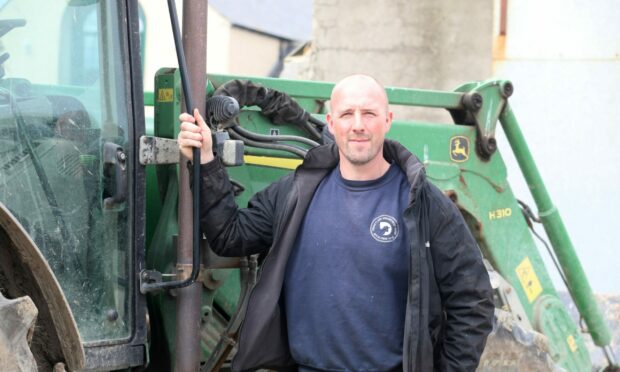Ten years after taking the plunge and turning his back on artificial fertilisers and chemical sprays, Steven Wylie hasn’t looked back.
Since he converted to organic farming, Steven, from the organic beef farm, Swartland in Sandwick, has felt the benefits, both in his 300 acres of land and the welfare of his livestock.
Even without the financial incentives available to farmers to begin working organically, Steven insists he would not change his method of farming, in what has evolved into a “low-input, low-cost” system.
He has been accepted for another five-year contract with the Agri-Environment Climate Scheme, extending his organic status, which began in 2013, to 2028 at least.
“Organic farms probably have a bigger chance of doubling their number in Orkney than they do across Scotland,” says Steven, who estimates that there are between 20 to 25 organic-certified farms in the county.
“I’m very sceptical of them [the government] managing to get it doubled by 2026. I think that’s probably unachievable.”
Reflecting on his conversion to organic at the family-run Swartland, it was the level of financial support that first attracted Steven.
Illness had forced his father to sell off most of the herd, leaving Steven with only around 13 cows when he took over its running in 2006.
Converting to organic in 2013 was a no-brainer for Steven, who admits that he had little idea of the new environmental-focused methods he was throwing himself into.
“We applied, and then set into having a big massive ploughing operation here, because it was based on arable acres, and then permanent pasture acres. The payments went from high to low, as the grade of land went down.
“We had a bit of a slow rotation of ploughing, so we set into it and ploughed out somewhere between 150 and 200 acres that year, just to catch the main arable payment.”
It has been a learning curve for Steven, who farms at Swartland along with wife Sharon and two sons, George and Ali.
On those early days, he says: “I found myself ploughing too much, spending an awful lot of money on seed, so we just trialled a lot of fields, leaving them the standard grass, clover, white clover mixtures, and leaving them more long-term. It was certainly a benefit.”
These days, he takes a meticulous and long-term approach to the rotation of his fields, monitoring the age of the fields, and taking regular soil samples for PH levels. This scientific approach helps ensure that growing conditions are at the maximum.
This has resulted in success, maintaining and boosting grass production and crop yields, and, through effective land management, ensuring soil health is supreme.
He also uses a 100 % grass-fed system for his herd, which Steven has grown steadily over the year, now boasting between 60 and 70 calving Aberdeen Angus, Simmental and Limousin cross cows, reared for the store cattle market.
“We’re over 60 now, and still selling 200-300 bales of haylage, and feeding the kye,” says Steven, the fourth generation of Wylie’s to run Swartland, which has been in the family for over 100 years.
Finishing animals and bringing his premium organic beef to the market continues to be an ambition for Steven, but it is a complex process, and one he hopes to develop as time goes on.
Perhaps the biggest beneficiaries of Steven’s organic approach have been the cows themselves.
In the summer, they have the freedom to graze on grass of the highest quality and, in the winter, they are housed in spacious byres on straw-bedded courts and fed on grass silage.
Despite organic products generally being higher in cost, and while straw accounts for one of biggest input costs, Steven says his input costs are a far cry from many of his industry colleagues at a time of exponential rises, including in fertiliser.
And, as a direct result of the financial support by going down the sustainable route, a major and sustained rejuvenation of farm buildings and building of new byres has taken place at Swartland in recent years.
